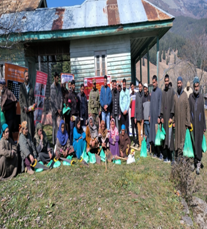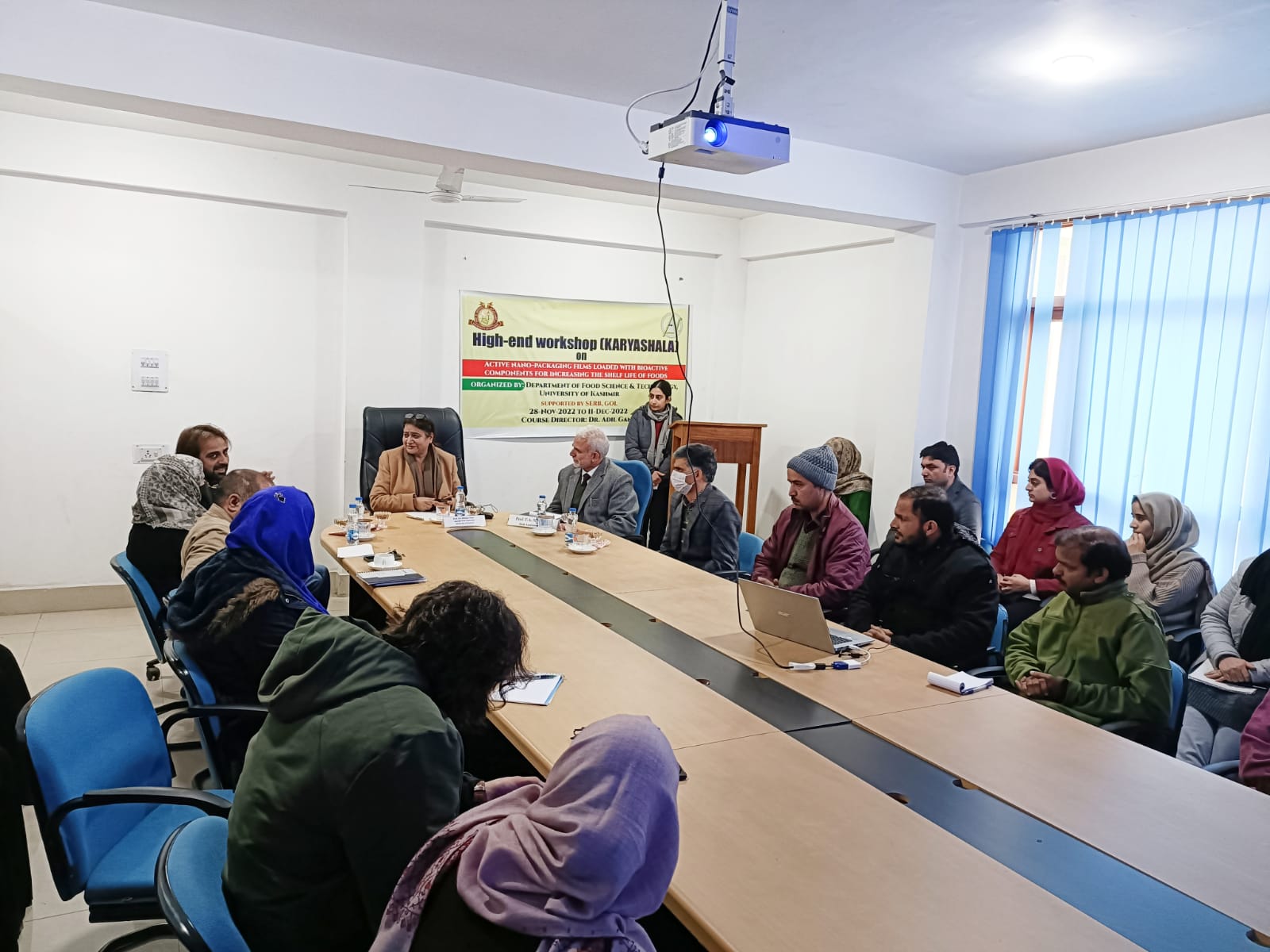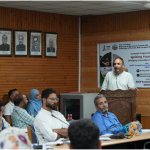SUCCESS STORY OF DST FUNDED PROJECT
Definition of the problem
Silkworm rearing as an alternate source for tribal areas of Gurez who have fractured landholdings and very less footing of agriculture and horticulture. Sericulture in these areas can prove to be best venture for women empowerment and employment generation.
Background of Story
In order to have an inclusive growth in the country, there is an endeavour to seek economic development on sustainable basis for all its citizens in general and rural and border areas in particular. Besides, unemployment and poverty are the major concerns at present. Thus employment generation and poverty reduction need serious attention while giving due respect to the environment in order to upscale the position of disadvantaged sections of the society.
Sericulture is an important agro based activity involving both environmental protection, employment generation vis-a-vis income .While there is ample scope to expand this activity to tribal and boarder areas to alleviate their poverty, much of attention has not been paid so far towards these under developed areas and sericulture still continues to remain in infancy there. Under such conditions expansion of mulberry sericulture to these new and unexplored areas assumes a great significance.
Among various border areas of the UT, Gurez sector situated at an altitude of 8000 ft ASL is important both from defence point of view and livelihood security development of the inhabitants on sustainable basis. Since scope of growing horticulture / agriculture crops is limited in this area and roads also remain closed for more than six months in view of heavy snowfall, Sericulture alone has the potential to improve the socio economic status of people of these areas besides helping in conserving the environment. The present study is therefore proposed to expand sericulture activity in non-traditional and far flung border areas of Gurez like Baktoor, Tarbal and Daverkhandyal.
Objectives
- Large scale plantation of improved mulberry genotypes on scientific lines.
- Transfer of technology for initiating silkworm rearing, cocoon production and mulberry field management.
- Capacity building of farmers especially woman and youth with respect to carrying out various sericulture and related activities.
Activities in Brief
Under the project about 3000 mulberry plants were planted in adopted villages of Gurez valley. Three clusters of different varieties of mulberry were raised in all the three adopted villages by planting about 600 plants/Cluster. About 1500 Plants were distributed among farmers of adopted villages. Farmers were also provided free inputs like fertilizers, pruning knives, and pruning saw, spades. Besides providing mulberry, raising training was given to the farmers on scientific lines. Silkworm rearing was also conducted first time in three villages (Bagtoor, Tarbal, and Dawar). The farmers were provided training of silkworm rearing on scientific lines during the month of August- September, 2022. Various capacity building programmes were organized in different villages of Gurez to bring awareness among unemployed educated youth especially women farmers about sericulture. The sprouting percentage was recorded above 90% and survival at the end of 1st year was above 70%.
Conclusion
During the course of study the new mulberry hybrids were tested in border area of Kashmir for evaluation and estimation of performance which ultimately helped us to introduce about 3000 mulberry plants of different high yielding varieties in border areas of Gurez suitable for harsh micro climatic conditions of area. In addition different silkworm hybrids were also evaluated for performance in the project area. During the course of study some new technologies like mountages, Bed disinfectants, cocoon dryers etc. developed at research station were tested first time at farmers level for field performance .The attempt will be made to recommend area specific mulberry genotype and silkworm race for border area like Gurez at the end of the project, so that farmers having fractured landholdings unfit for cultivation of different agriculture and horticulture crops can find alternate source of livelihood from allied fields of agriculture.
The project helped us to bring uncultivable and barren land into cultivation. During the course of study sericulture will be introduced as a component of integrated farming system in border area which will ultimately help in increasing socio economic status and doubling the income of these tribal farmers. At the end of the first year more than 70% success was recorded in established mulberry plantation. The response of farmers was recorded both digitally and in written for preparation of this success story.
(Author is Assistant Professor at College of Temperate Sericulture, Mirgund, SKUAST-Kashmir. Email: [email protected])








